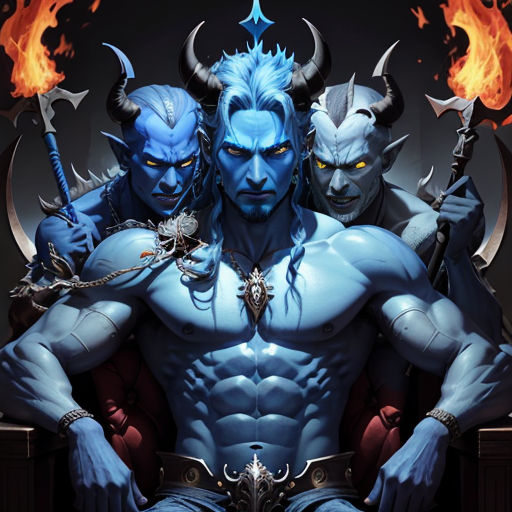
Ravan: The Demon King
By Karna

14 Aug, 2023
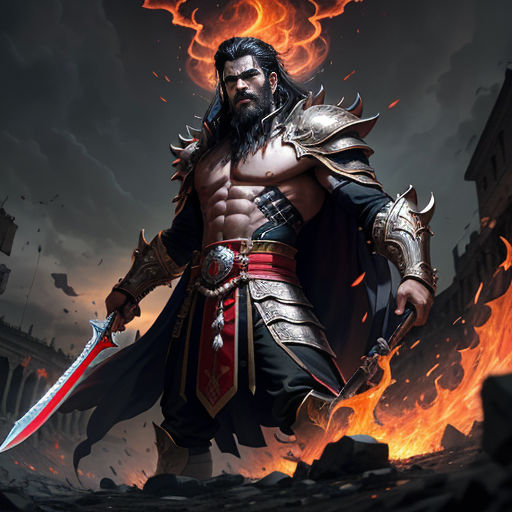
In the mystical city of Lanka, there reigned a powerful demon king named Ravan, known for his might and wisdom. However, the power had a vice, and it was Ravan's insatiable pride.
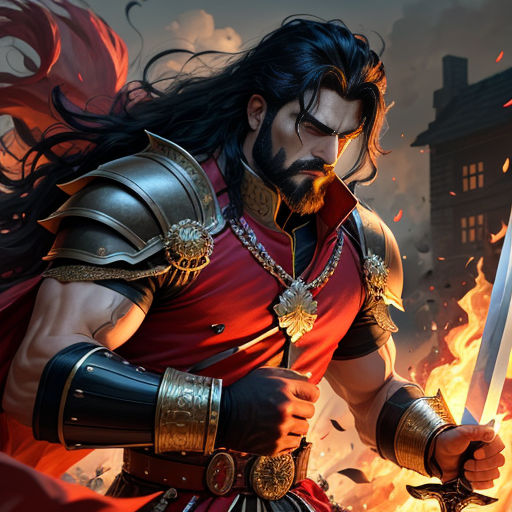
Ravan was no ordinary demon. Despite his monstrous appearance, he was extremely knowledgeable. He was a great scholar and a devotee of Lord Shiva but was blinded by his pride.
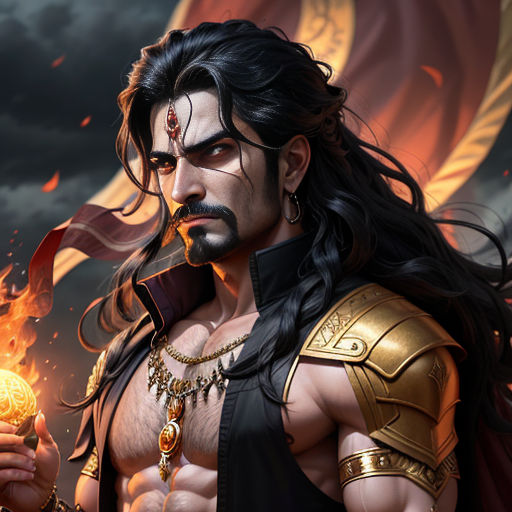
This pride led him to commit a grave mistake. He abducted Sita, the wife of Lord Rama, thereby inciting his doom. But, Ravan had not always been malevolent; a tale of redemption lied within him.
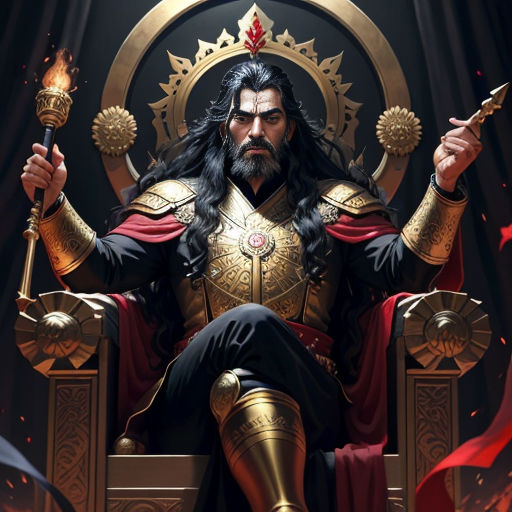
Ravan was born from a union of a sage and a demoness. From his birth, he possessed an extraordinary intellect and strength, surpassing his peers in every aspect.
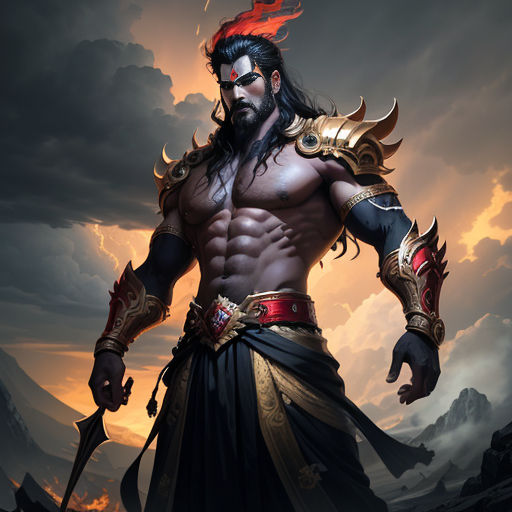
As he grew, his power grew too, and so did his pride. He considered himself invincible and began tormenting the celestial beings, challenging their rule and authority.
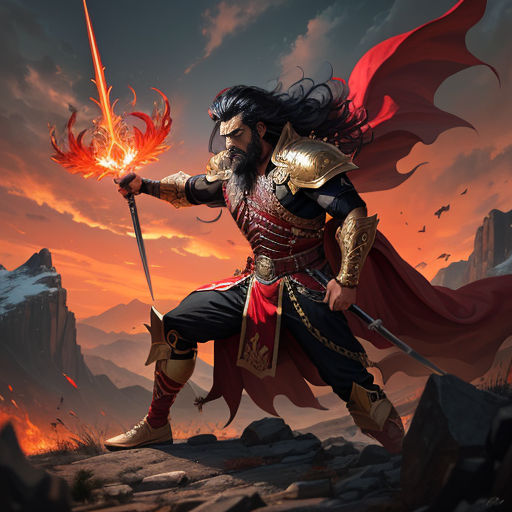
His reign of tyranny was ceaseless as he used his knowledge, power, and cunningness to wage wars against the gods, defeating them effortlessly. This further enhanced his arrogance.

His tyranny grew to such extents that he even challenged Death itself. Using his immense powers, he forced the celestial beings to grant him immortality, further fortifying his invincibility.

Despite his invincibility, the gods knew of a loophole - Ravan was invincible to all beings, except humans. The gods banked on this weakness, which ultimately led to his downfall.
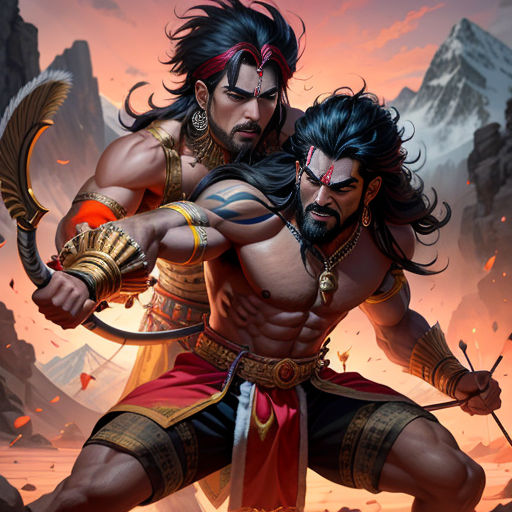
The abduction of Sita was the catalyst triggering his end. Lord Rama, a human king blessed by the Gods, embarked on a mission to rescue his wife and stop Ravan's tyranny.
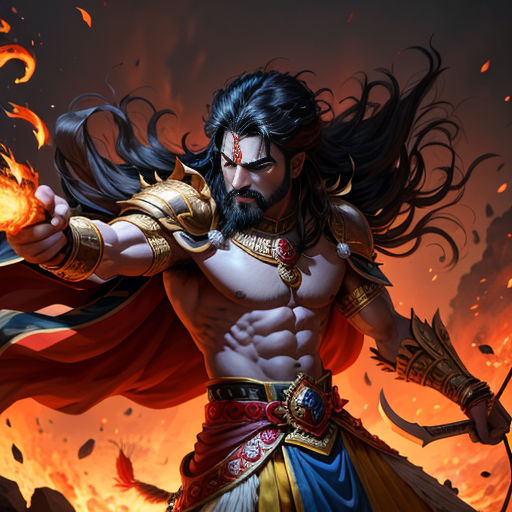
Lord Rama's righteousness contrasted with Ravan's proud tyranny. Both were mighty, but their virtues set them apart, displaying a stark contrast between good and evil.
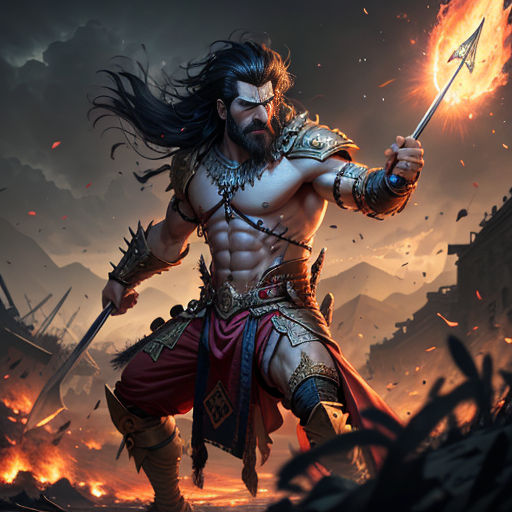
A colossal war broke out between Rama's forces and Ravan's army. It was a war that shook the heavens and earth, a clash between power and righteousness.
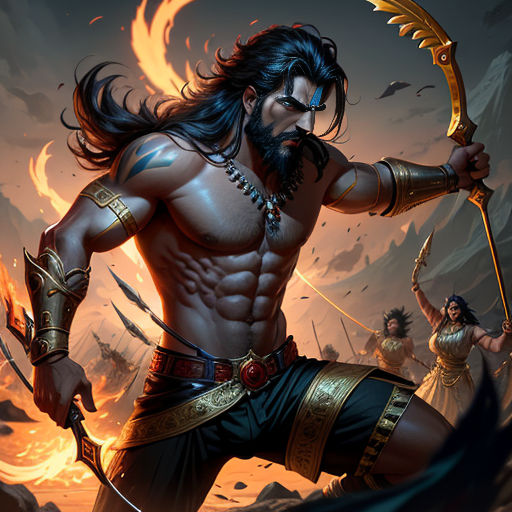
Despite his powers, Ravan was destined to fall. His invincibility was void against a human. The loophole in his immortality was his undoing, as he was ultimately defeated by Lord Rama.

With his defeat, Ravan realized his mistakes. His excessive pride had led him to his doom. As he breathed his last, he confessed his errors and found his redemption.
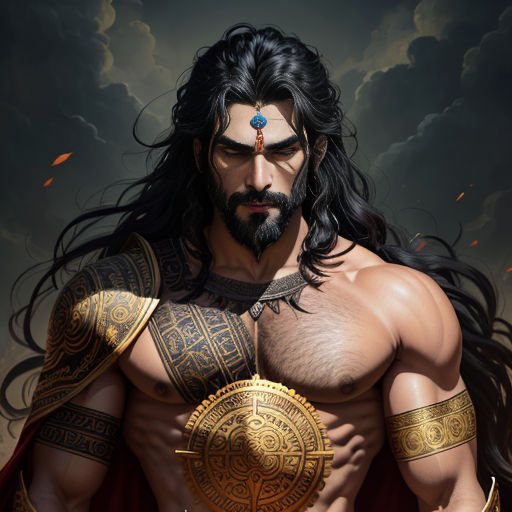
Ravan left an enduring legacy. The tale of Ravan is a lesson to all about the consequences of unchecked pride and power. He is remembered as a great king, a scholar, but also as a symbol of pride and arrogance.
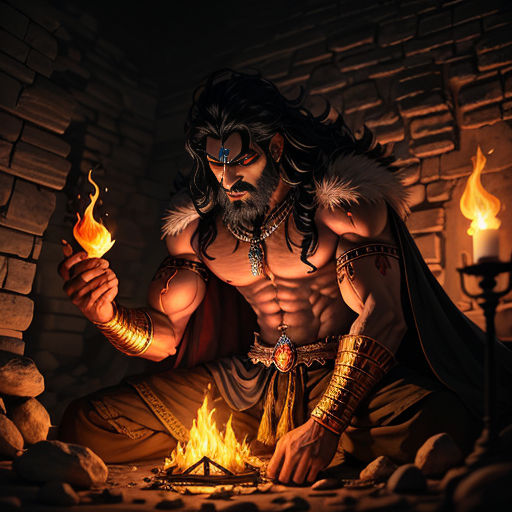
Despite his negative image, Ravan is respected for his knowledge and devotion to Lord Shiva. His tale is not merely of a demon king, but of a flawed individual, blinded by power and pride.
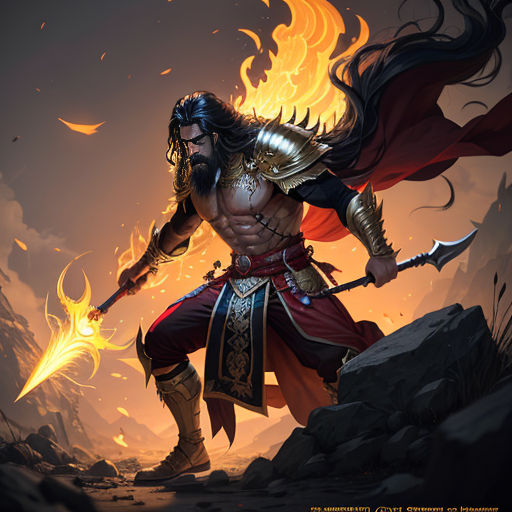
His story represents the eternal battle within us - the struggle between good and evil. It is a reminder that even the most powerful can fall if they let their negatives overrule them.
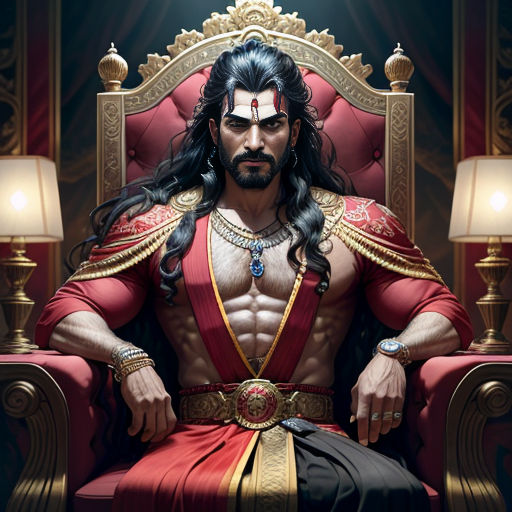
Ravan is no hero, yet he is no ordinary villain. His life is a cautionary tale of the potential destructive force of unchecked ambition and pride.
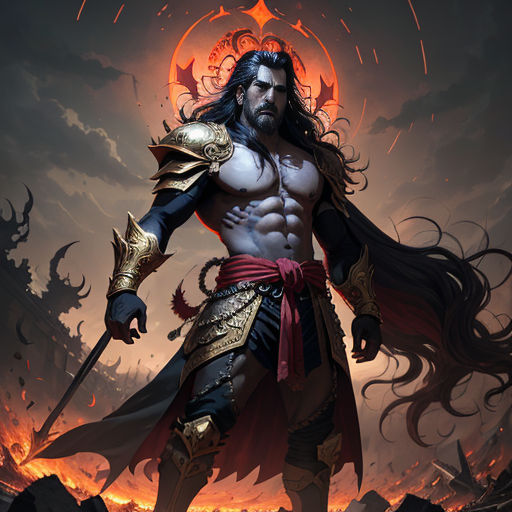
It's a story about power, about the dangers of letting power cloud your judgment, and about redemption when one realizes their faults.
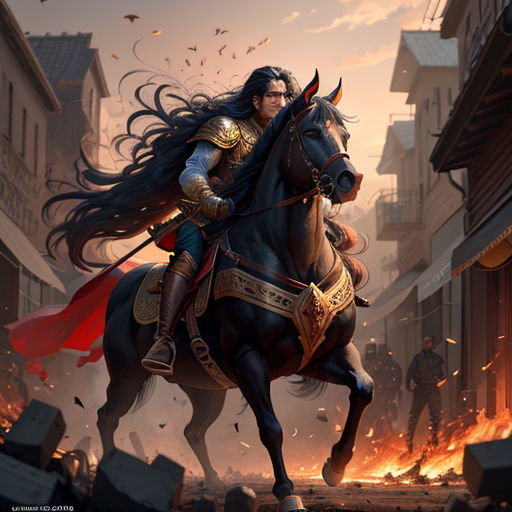
It is the tale of the potential devastation one can cause when blinded by power but also about the hope for redemption, even in the most troubled hearts.

Ultimately, Ravan's story is a timeless tale, echoing the ghastly repercussions of uncontrolled desires and the significance of humility even amidst great power.
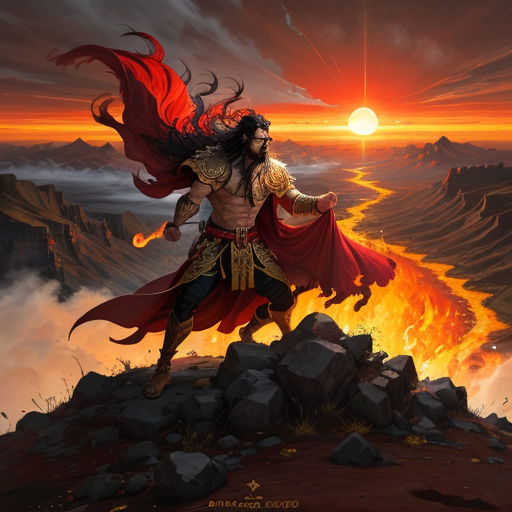
His story is a testament to the fact that unchecked ego and power can lead to one's downfall. His life serves as a moral lesson for generations to come.
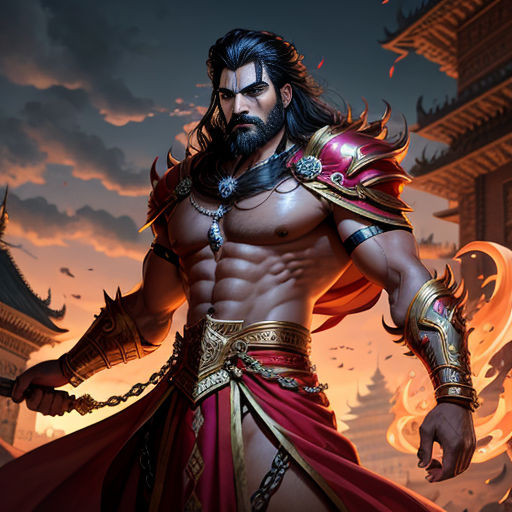
Ravan's tale continues to be told and retold, serving as a timeless parable, illuminating the dangers of excessive pride and the redemptive power of humility.
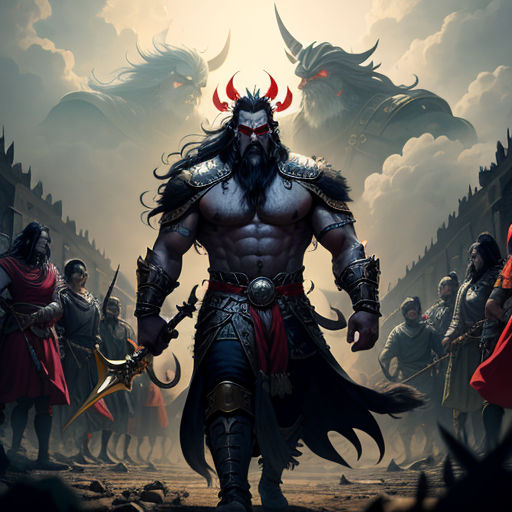
The tale of Ravan imparts the teaching that wisdom and power should be used for welfare, not for self-aggrandizement, and certainly not to cause pain or fear to others.

In the end, his story teaches us that no one is beyond redemption, and acknowledging one's faults and seeking forgiveness is a path to enlightenment and inner peace.
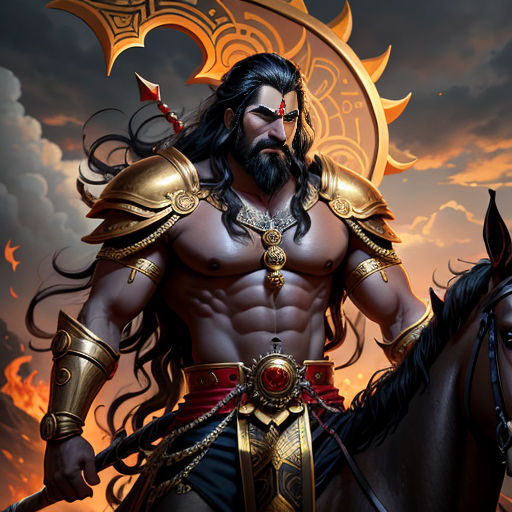
Ravan's saga, a tale of power, arrogance, and redemption, remains largely misunderstood. Yet, it continues to resonate, reminding us of the sacredness of virtue over power.
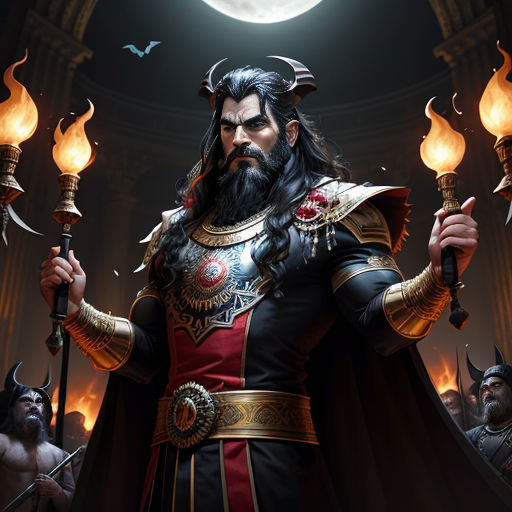
The spine-chilling tale of Ravan serves as an essential reminder; power combined with arrogance is a blinding force, and it is only humility that paves the path to redemption.
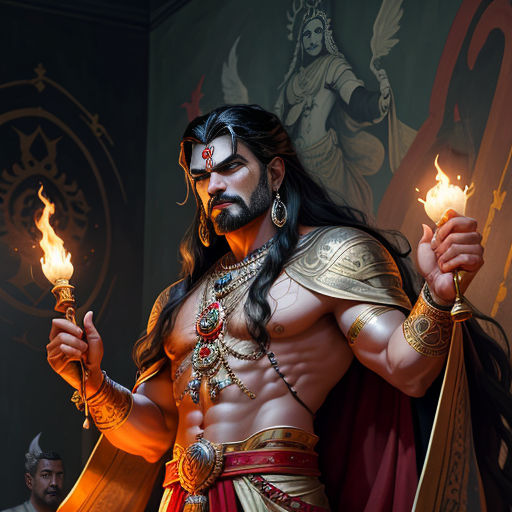
Through Ravan's tale, we understand that it's not the power that corrupts a being, but how that power is wielded. The tale offers a timeless lesson of humility and the consequences of prideful arrogance.
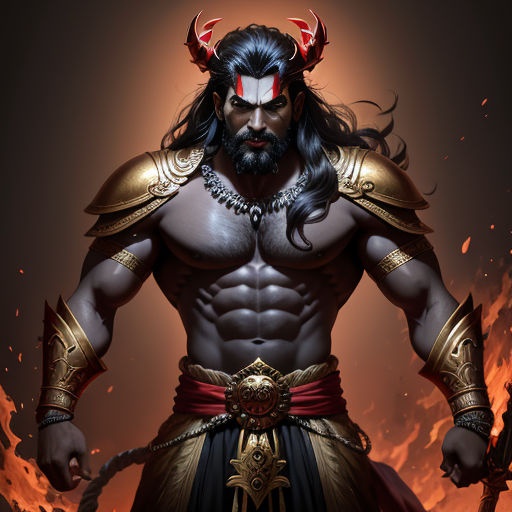
Ravan, through his life and death, represents the eternal battle between virtue and vice. His legend has transcended time, cautioning us of the perils of pride and reinforcing the power of redemption.
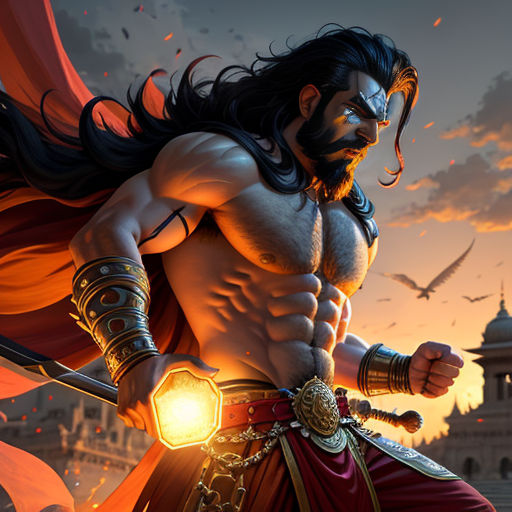
The story of Ravan is one of the many tales that suggest that everyone has a chance at redemption. It's never too late to realize your mistakes, repent, and seek forgiveness.
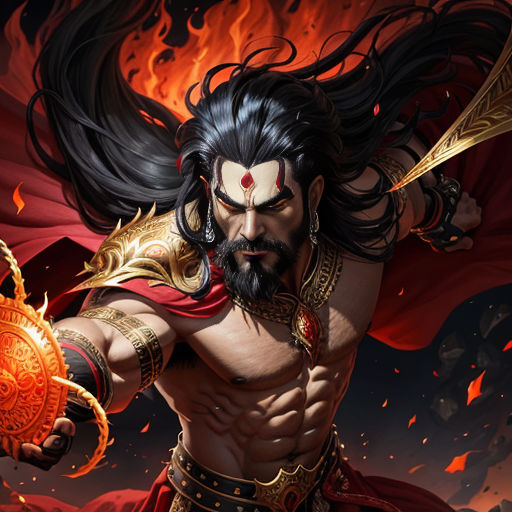
The tale of Ravan serves as a reminder of the duality of life - of wisdom and ignorance, power and weakness, good and evil, mistakes and redemption - resonating across the ages.
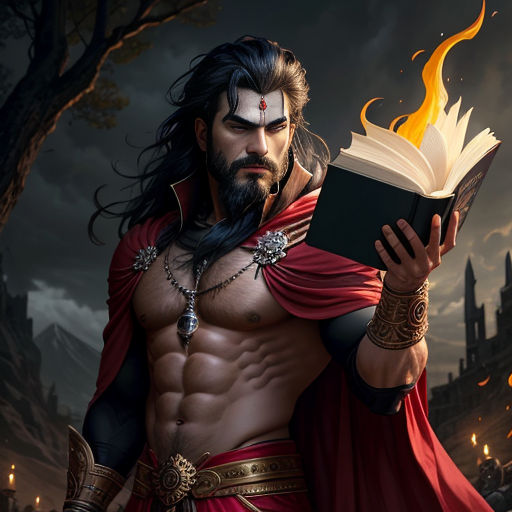
Ravan's story is a journey from ignorance to enlightenment, from arrogance to humility, embodying a profound parable about the essence of life, teaching us humility, love, and forgiveness.
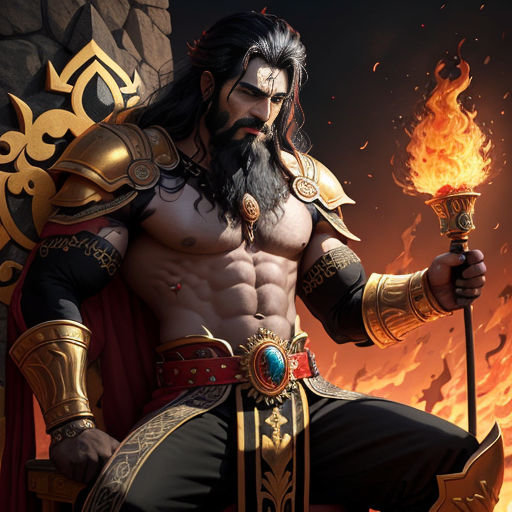
Even centuries later, the story of Ravan, the Demon King, continues to inspire, instruct, and remind us of the eternal truth - that power, when driven by arrogance, breeds catastrophe.
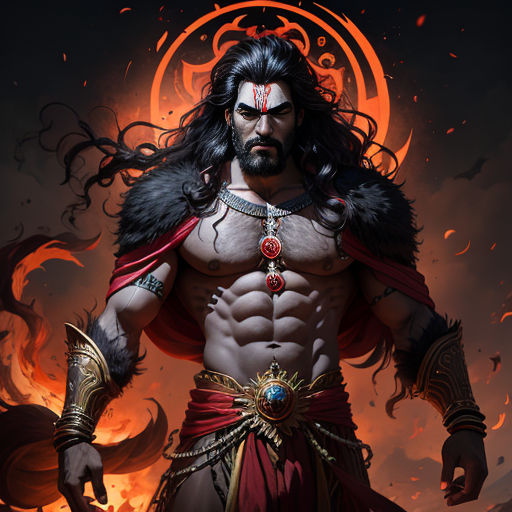
Ravan's tale is not just a story, it is a mirror that reflects our inner selves, the darkness within us, and the power of redemption as long as we are willing to recognize our faults.
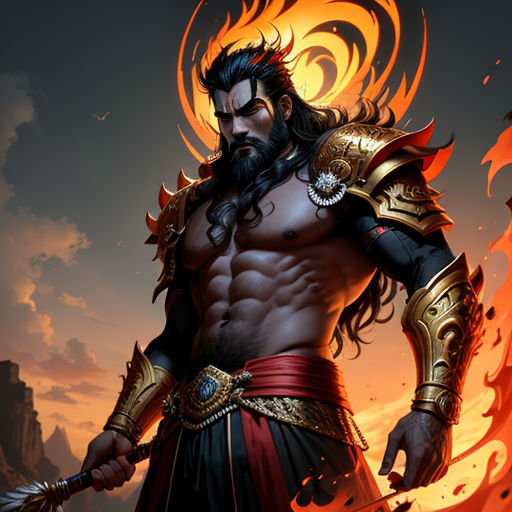
The saga of Ravan stands as a powerful testament to the fallible nature of power and pride, and the timeless possibility of redemption, teaching us invaluable lessons for life.
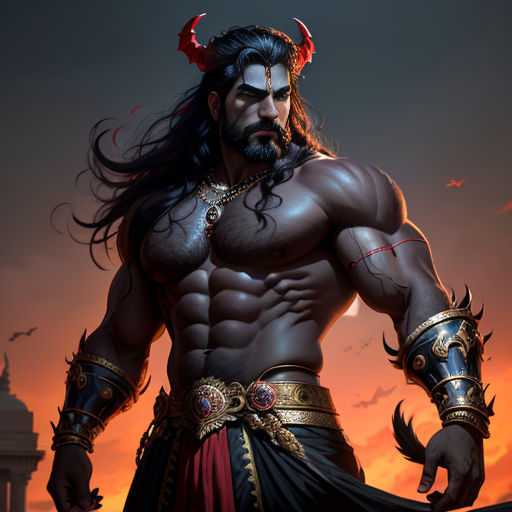
Thus, the story of Ravan, the Demon King, is a compelling tale of power, redemption, and the darkness within, resonating across time, reminding us of the virtues of humility and righteousness.